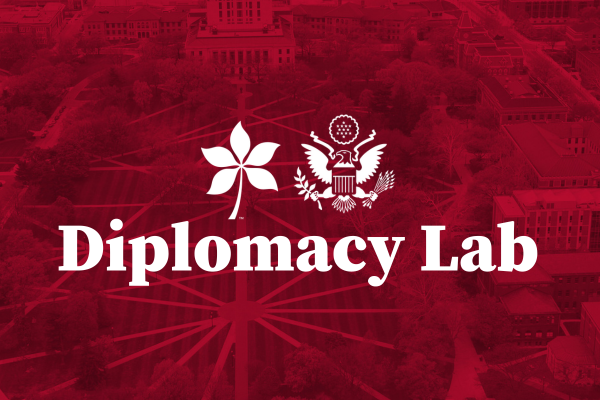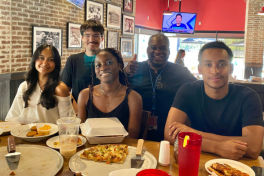Diplomacy Lab Proposals due Oct 4

Connect your spring course to real-world US government projects! The Spring 2025 Diplomacy Lab Project Menu has been released, with over 80 topics from embassies and offices across the State and Treasury Departments. Projects suitable for a wide range of course levels and disciplines, engaging a wide range of US involvements abroad, can be fit into existing curricular offerings. The bidding process for instructors is very simple but the deadline is short. See the Mershon Center for International Security Studies Diplomacy Lab website for details, and/or contact DipLab coordinator Prof. Angela Brintlinger.
About Diplomacy Lab
The Mershon Center is the institutional host at Ohio State for the Diplomacy Lab, a program offering real-life research opportunities for students in cooperation with US embassies and the Department of State. Projects are situated across the world and address a range of policy challenges including public health, energy security, women’s economic inclusion, drug trafficking, extremism, urban planning, emerging technologies, accessibility, climate change, human rights, disinformation, sustainability, and more.

Prior to each semester, the Lab provides its partner academic institutions with a menu of research topics. Faculty bid on these, through a simple process, to develop group projects at levels ranging from GEs to graduate work. Normally these projects are incorporated into their regularly scheduled courses. During the semester, students have several opportunities to consult with State or Treasury Department experts; course-end deliverables vary by project. Students learn about the work of the Departments and have an opportunity to influence global cooperation initiatives through their research.
Ohio State begin its DL collaboration in Autumn 2024, with three courses that are happening now:
- In a 3000-level course in Public Health, Lorraine Wallace's twelve students are cooperating on the modernization of medical clearances for US diplomats. Final products will include (1) compendiums of best practices and data summaries, (2) prioritized lists of actionable strategies and recommendations, and (3) interactive slide presentations and accompanying written reports with executive summaries.
- Center for African Studies director Ousman Kobo and assistant director Jacien Carr created a 4000-level seminar for students on the “Resurgence of Military Coups in Africa and the Impact of Colonial Legacies.” After studying the historical background, students are collaborating on a policy paper on the present sources of instability in military-civilian government relations in Francophone West Africa.
- Zulal Fazlioglu Akin is taking an unusual approach to the rise of far-right populism in Europe through a 5000-level seminar in Art Education, with students writing a comparative report on cultural policy as an instrument for advancing political objectives.
